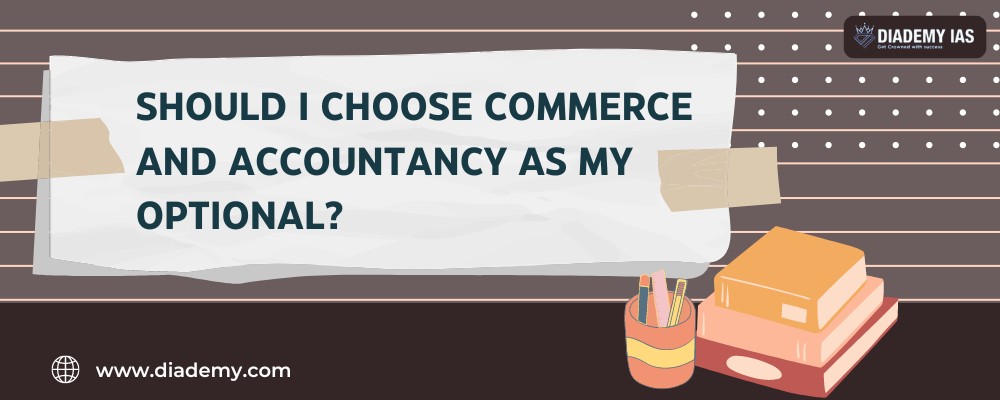
Are you considering Commerce and Accountancy as your optional subject for the UPSC exam? If so, you are not alone. Many candidates, with a background in commerce or an interest in accountancy, are drawn to this as optional paper. In this article, we will delve into the factors you should consider when making this decision.
Commerce and Accountancy offer a unique set of advantages for UPSC aspirants. Firstly, this subject provides a solid foundation in financial management, business law, and economic principles, which are crucial for a career in administration and policymaking. Secondly, the vast scope of the syllabus allows you to explore various aspects of commerce and accounting, giving you an edge in solving case studies and analyzing economic policies. Lastly, the practical approach of these subjects makes it easier for candidates with a commerce background to grasp complex concepts and apply them effectively.
However, it is essential to evaluate your personal strengths, interests, and career goals before choosing Commerce and Accountancy as your optional subject. Consider your aptitude for numbers, critical thinking skills, and the relevance of these subjects in your future career. By making an informed decision, you can increase your chances of success in the UPSC exam and subsequent opportunities in the field of administration and finance.
Overview of Commerce and Accountancy as an Optional Subject
Commerce and Accountancy offer a unique set of advantages for UPSC aspirants. Firstly, this subject provides a solid foundation in financial management, business law, and economic principles, which are crucial for a career in administration and policymaking. Understanding the intricacies of commerce and accounting is essential for making informed decisions in various government roles. Moreover, the concepts of cost accounting, auditing, and financial analysis are directly applicable to the financial management of government departments and organizations.
The syllabus for Commerce and Accountancy is comprehensive, covering a wide range of topics such as financial accounting, corporate governance, business ethics, taxation laws, and economic policies. This extensive coverage allows candidates to develop a deep understanding of the subject and enhances their analytical abilities. Additionally, the syllabus is regularly updated to reflect the dynamic nature of commerce and accounting, ensuring that candidates are well-prepared for the challenges of the UPSC exam.
Furthermore, the practical approach of Commerce and Accountancy makes it easier for candidates with a commerce background to grasp complex concepts and apply them effectively. The subject requires a logical and systematic approach to problem-solving, which is inherent in the field of commerce. Candidates with prior knowledge of accounting principles and business practices have an advantage when it comes to solving case studies and analyzing economic policies. This practical orientation also helps candidates develop critical thinking skills, which are highly valued in administrative roles.
Pros and Cons of Choosing Commerce as an Optional Subject
Pros:
- Commerce can be a great choice if you have a good understanding of the subject and a strong foundation.
- It is interesting and provides insights into various financial aspects.
- Choosing an optional subject should be based on your interest and ability to handle it till the end.
Cons:
- The biggest challenge is the need for extensive reading and integrating information from various sources.
- This results in a comprehensive syllabus for both paper 1 and paper 2.
- A high level of competence is required because UPSC numerical questions can be very unpredictable.
Advantages of choosing Commerce and Accountancy as an optional subject
Choosing Commerce and Accountancy as your optional subject for the UPSC exam offers several advantages. Firstly, it allows you to leverage your existing knowledge and expertise in commerce and accounting. If you have a background in commerce, studying this subject will feel familiar and comfortable, enabling you to focus on mastering the nuances of the syllabus rather than starting from scratch.
Secondly, Commerce and Accountancy provide a solid foundation for a career in administration and finance. The subject equips you with the necessary knowledge and skills to handle financial management, budgeting, and policymaking in government departments and organizations. Understanding the principles of commerce and accounting is essential for making informed decisions and ensuring the efficient use of public resources.
Another advantage of choosing Commerce and Accountancy is the vast scope of the syllabus. The comprehensive coverage of topics allows you to explore various aspects of commerce and accounting, giving you an edge in solving case studies and analyzing economic policies. The syllabus includes areas such as financial accounting, auditing, cost accounting, taxation laws, business ethics, corporate governance, and economic policies. This diverse range of topics enhances your understanding of the subject and prepares you to tackle a wide range of questions in the exam.
Moreover, Commerce and Accountancy offer a practical approach to learning. The subject is rooted in real-world scenarios and requires candidates to apply their knowledge to solve complex problems. This practical orientation not only makes the subject interesting but also helps candidates develop critical thinking and problem-solving skills. These skills are highly valuable in administrative roles, where decision-making and problem-solving are integral parts of the job.
Also Read - Diademy UPSC 2023 Toppers
Success stories of candidates who chose Commerce and Accountancy as an optional subject
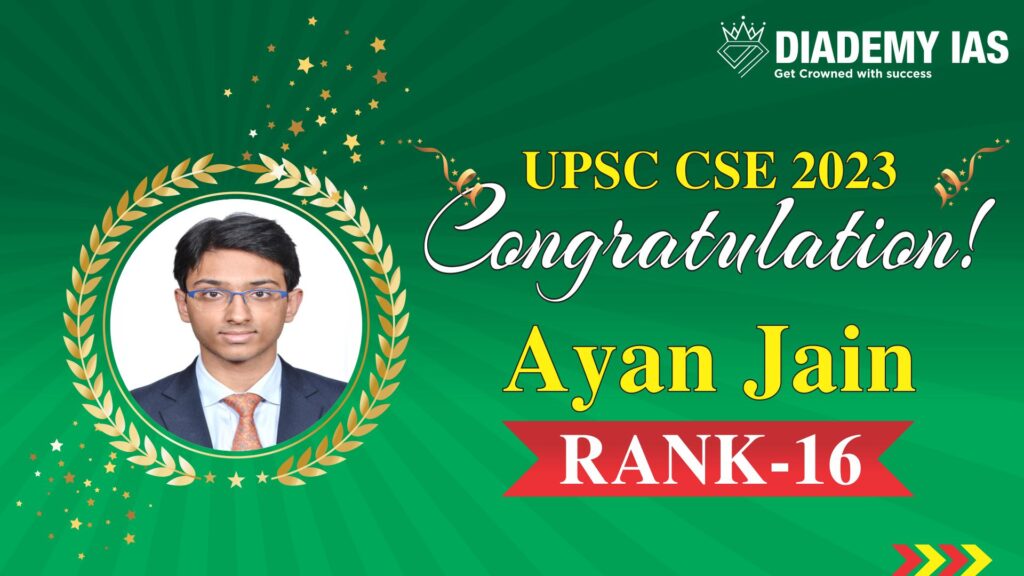
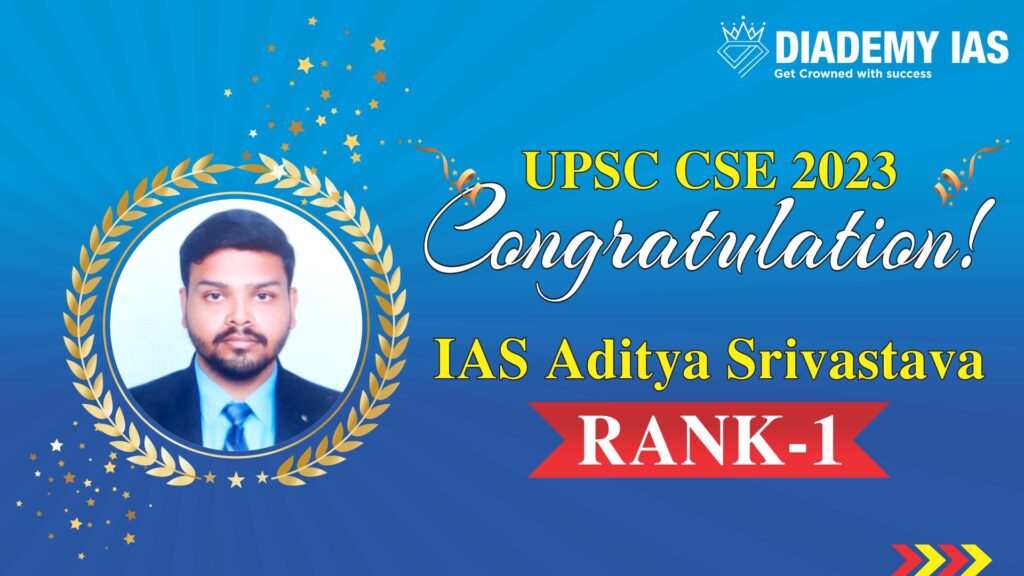
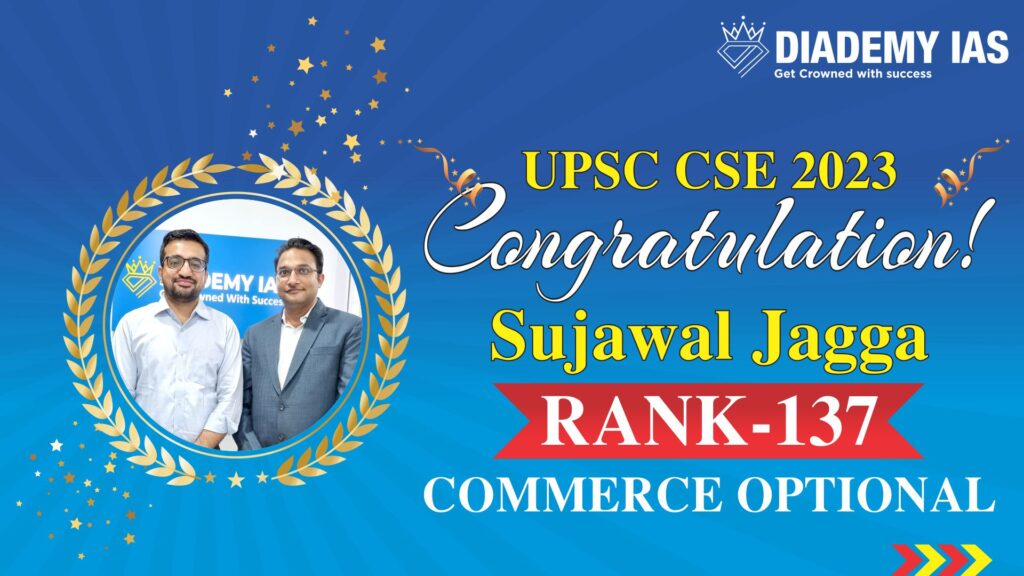
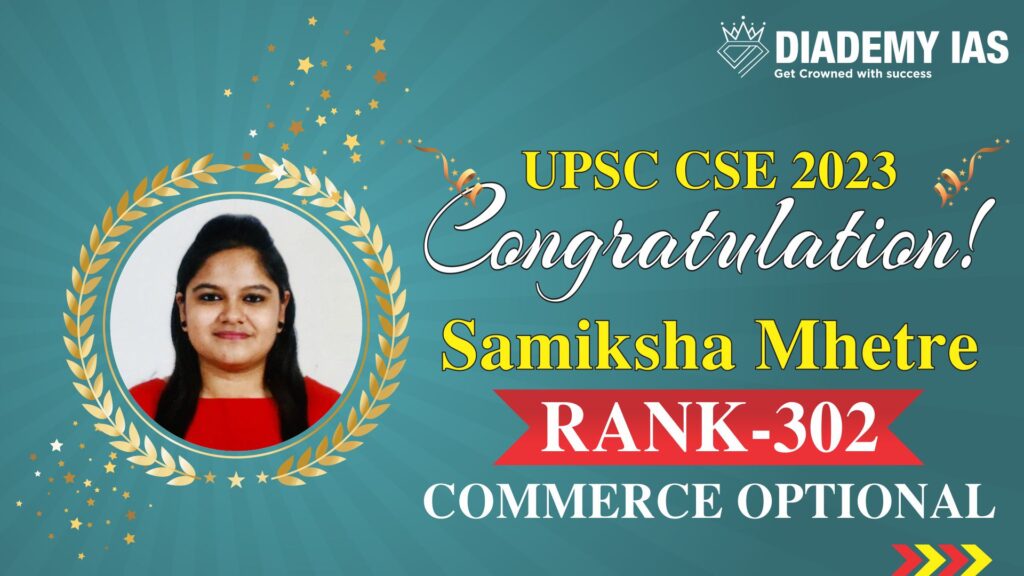
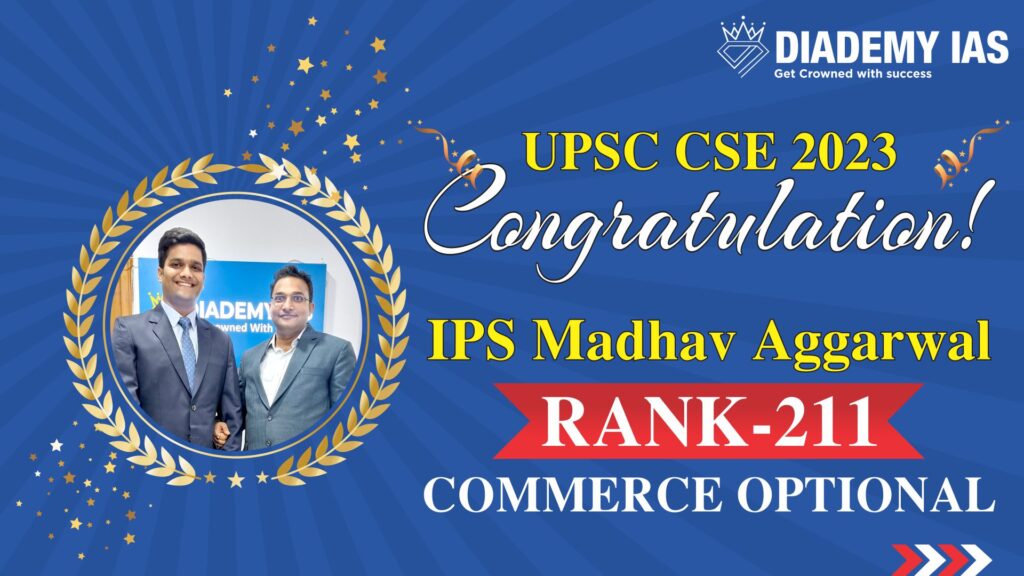
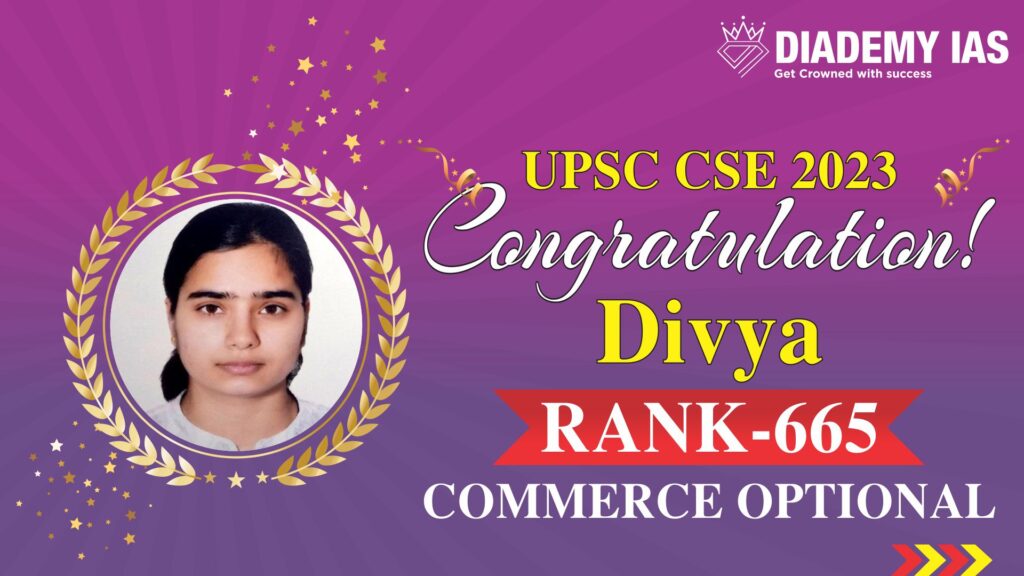
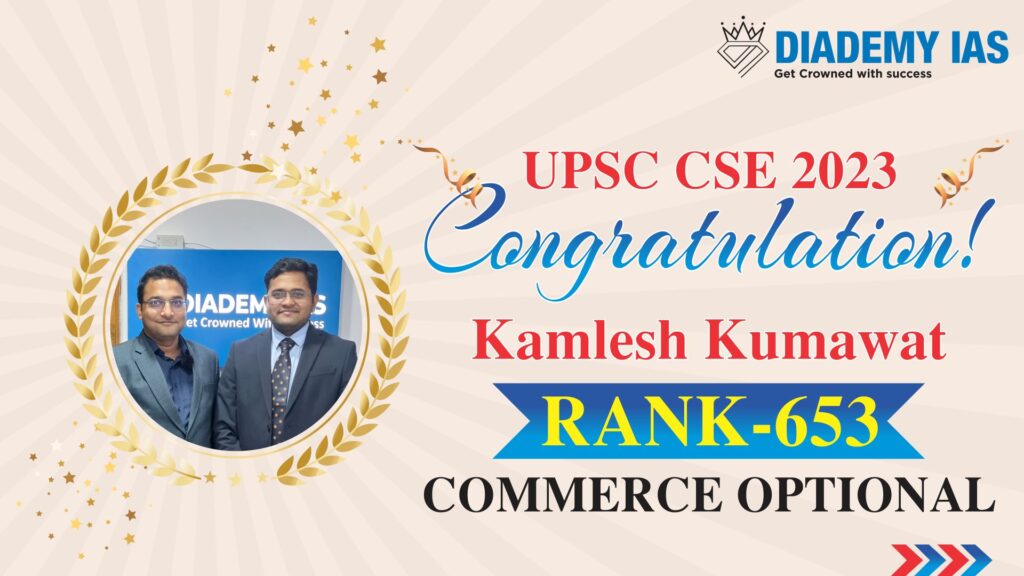
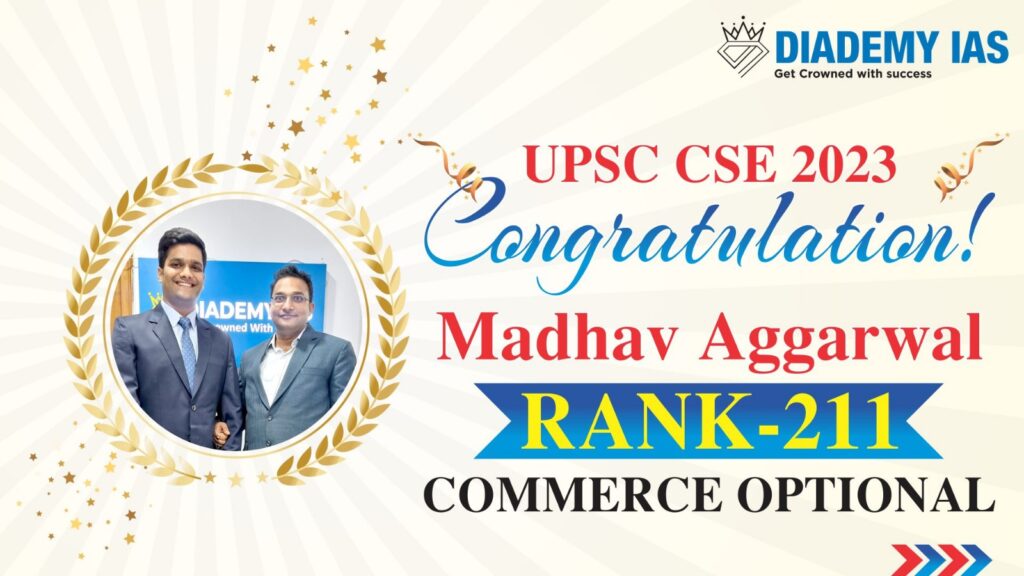
Recommended books and study materials for Commerce and Accountancy
Selecting the right study material is vital for effective preparation. Here are some highly recommended books for each section of the Commerce and Accountancy optional syllabus:
- Cost and Management Accounting: “Cost Accounting” by Maheshwari & Mittal
- Corporate Accounting: “Advanced Accountancy” by P C Tulsian
- Accounting standards by D S Rawat
- Taxation: “Income Tax” by Girish Ahuja & Ravi Gupta
- Auditing: “Students’ Guide to Auditing” by Aruna Jha
- Financial Management by R P Rustagi
- Financial markets & institutions by L M Bhole
- Industrial relations and labour laws by Piyali Ghosh
- Human Resource Management by Ashwathappa
- Organisation theory and Behavior by Singh & Chabbra
- Organisation behaviour by S P Robbins
Tips for preparing Commerce and Accountancy as an optional subject
Preparing Commerce and Accountancy as an optional subject for the UPSC exam requires a systematic and focused approach. Here are a few tips to help you excel in your preparation:
- Understand the syllabus: Familiarize yourself with the detailed syllabus for Commerce and Accountancy. Identify the key topics and subtopics and create a study plan accordingly. This will help you cover the entire syllabus systematically and avoid missing any important areas.
- Study from reliable sources: Choose the right study materials and books for Commerce and Accountancy. Opt for books written by renowned authors and recommended by experts. Additionally, refer to previous years' question papers and sample papers to get an idea of the exam pattern and the type of questions asked.
- Develop conceptual clarity: Commerce and Accountancy require a strong foundation in concepts. Focus on understanding the fundamental principles and theories before delving into complex topics. Clear your doubts and seek guidance from teachers or subject matter experts whenever necessary.
- Practice numerical problems: Commerce and Accountancy involve numerical calculations and problem-solving. Regularly practice solving numerical problems from textbooks and sample papers to improve your speed and accuracy. This will also help you develop a logical and systematic approach to problem-solving.
- Analyze case studies: Case studies play a significant role in the Commerce and Accountancy paper. Practice analyzing case studies from previous years' question papers and sample papers. Pay attention to the problem statement, gather relevant information, and provide a logical and well-supported solution.
- Stay updated with current affairs: Commerce and Accountancy are closely linked to the economic and financial landscape of the country. Stay updated with the latest economic policies, budget announcements, and business news. This will help you connect theoretical concepts with real-world scenarios and enhance your understanding of the subject.
- Practice time management: Time management is crucial in the UPSC exam. Practice solving previous years' question papers within the stipulated time frame to improve your speed and efficiency. Develop a strategy to allocate time to each section and question based on your strengths and weaknesses.
Comparison of Commerce and Accountancy with other popular optional subjects
While Commerce and Accountancy offer unique advantages, it's essential to consider how they compare to other popular optional subjects for the UPSC exam. Each subject has its own set of strengths and weaknesses, and the choice ultimately depends on your personal interests and career goals.
For candidates with a background in commerce or an interest in finance, Commerce and Accountancy can be an excellent choice. The subject aligns well with their existing knowledge and helps them leverage their expertise in a practical and relevant manner. However, candidates from other backgrounds may find it challenging to grasp the concepts and may require additional effort to excel in this subject.
Other popular optional subjects such as History, Geography, Public Administration, and Political Science have their own merits. These subjects offer a broader perspective on society, governance, and historical events, which can be advantageous in the UPSC exam. Candidates with a keen interest in these subjects and a knack for analytical thinking may find them more suitable. It's crucial to consider your strengths, interests, and career aspirations before making a decision.
Best Coaching institute for Commerce and Accountancy Optional Preparation
If you choose to opt for Commerce and Accountancy as your optional subject, there are several coaching institutes and online resources that can assist you in your preparation.
Out of these the best coaching institute for Commerce and Accountancy optional is Diademy. We also offer comprehensive study materials, mock tests, and guidance from industry experts. They also conduct regular classes and workshops to help candidates understand complex concepts and clarify doubts.
In addition to classroom coaching, we also provide online coaching through Zoom, YouTube and discussion forums for Commerce and Accountancy.
With our expert faculty and comprehensive study materials, we guarantee that you will not only understand the concepts but also excel in your exams. Our personalized approach to teaching ensures that each student receives individual attention and guidance to achieve their goals. Join Diademy today and let us help you reach your full potential in Commerce and Accountancy optional preparation. Your success is our priority!
Conclusion and final decision-making factors for choosing Commerce and Accountancy as an optional subject
Choosing the right optional subject for the UPSC exam is a crucial decision that can significantly impact your chances of success. In the case of Commerce and Accountancy, it offers a unique set of advantages for candidates with a commerce background or a keen interest in finance.
The subject provides a solid foundation in financial management, business law, and economic principles, which are essential for a career in administration and policymaking. The vast scope of the syllabus allows for a comprehensive understanding of various aspects of commerce and accounting, enhancing analytical abilities and problem-solving skills. Moreover, the practical approach of the subject makes it easier for candidates with a commerce background to grasp complex concepts and apply them effectively.
However, it's essential to evaluate your personal strengths, interests, and career goals before choosing Commerce and Accountancy as your optional subject. Consider your aptitude for numbers, critical thinking skills, and the relevance of these subjects in your future career. If you have a background in commerce or a strong interest in finance, Commerce and Accountancy can be an excellent choice. However, candidates from other backgrounds may find subjects like History, Geography, Public Administration, or Political Science more suitable.
Make an informed decision by weighing the advantages and disadvantages of each subject, considering your strengths and interests, and seeking guidance from experts. By doing so, you can increase your chances of success in the UPSC exam and subsequent opportunities in the field of administration and finance.